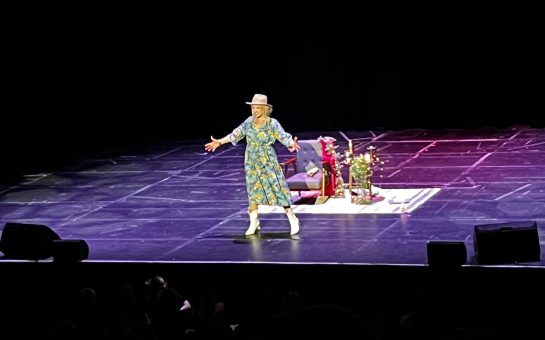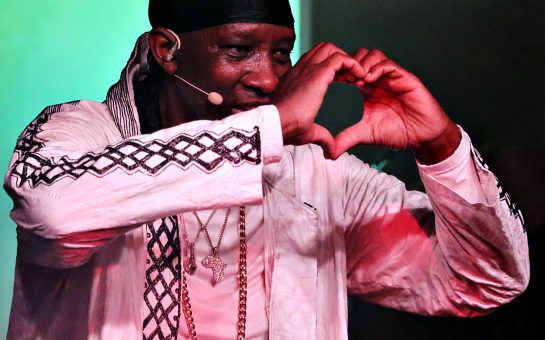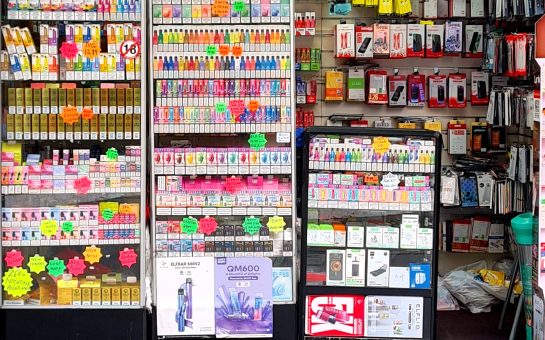Punk legend Peter Hook took time out to speak to MM about his career, the music industry and the Manchester club scene.
Gorilla seemed a very fitting location with the iconic arches of the railway bridge above us at just a stone’s throw away from where the Haçienda used to be.
The city was the Salford-born bassist’s first choice to try out the set, including both New Order and Joy Division songs, for his upcoming European tour with his new outfit Peter Hook and the Light.
Hooky told MM: “There is no other city that has a stranglehold on music the way that Manchester does – even now.”
“It’s the weirdest place in the world and I am very proud to be an ambassador for it and I am very proud to be associated with it.
“Every time I do fly off somewhere, as I do in my naivety, when I come back it feels like I am coming home to a very important musical place. It is shockingly consistent.”
Joy Division, which he co-founded with Bernard Summers in the mid-70’s, was signed to the infamous Factory Records.
Hooky said: “I play bass because Bernard had a guitar, it was a simple as that. We were emulating The Sex Pistols.
“The Sex Pistols had a straight forward rock line-up, which was guitar, bass drums and vocals and we thought we needed to be like that.
“The thing about any instrument is that you have to put your own stamp on it so that it becomes yours and your style becomes important and that’s what could make you successful.
“It’s about making anything that you do your own.”
Hooky acquired his first amp from his music teacher for £10, the poor quality of which forced his hand and redefined the role of the bass guitar.
He said: “I don’t know why I started using the bass as a melodic instrument. It evolved so organically that I don’t know how it happened.
“I started playing high because the equipment was so bad that I couldn’t hear it when I played low.
“The thing is that Ian Curtis, God rest his soul, really particularly loved to hear that and he encouraged me to do it over and over again.
“He said play high, it sounds great when you play high. That’s the interesting thing and one of the positive things about being in a group is when you find people that are attuned to you and love what you do then it’s easy.”
Quietly confident, Hooky acknowledges the role he played in redefining music but admits that much of what makes good bands great isn’t always deliberate.
He said: “Most of what defines seminal music happens by accident. By recording, you do a lot of things by accident even with a computer you actually make a lot of mistakes.
“In the old days without machines, it used to be so slow and the music you were playing would overlap with the music on tape and you’d think wow that sounds really good and you’d try and emulate the fuck up to make it different.
“Accidents are very, very important. People write in different ways, some write together as a four piece, some groups, like Coldplay, the singer will write it all.
“You wouldn’t say that was wrong because Coldplay are fantastically successful, but you wouldn’t say it was more valid.”
Ever the diplomat, Hooky appreciates that the different paths people take into the industry are what makes it such a varied career path to take.
He continued: “Coldplay can make people cry in the same way that Joy Division made people cry and in the same way they both make people happy.
“It’s a very difficult thing and one of the things you learn is that everyone’s different and you are trying to appeal to people who are like you.
“That was what punk was all about, making music for people like you. That’s why when other people tell you to stop and you have to be very wary of taking too many opinions.
“As soon as you question yourself in this business it becomes difficult so you’ve got to be careful who you try to please.
“From my point of view it’s much safer trying to please yourself then trying to please everybody else.”
The Haçienda has long been hailed as having revolutionised the clubbing scene but it rarely made money and for those involved was more a labour of love.
He continued: “I was much happier in the music industry when you didn’t have to worry about awards or money.
“The struggle was to get a gig or your single recorded and then get it on the radio.
“So, the be all and end all doing it wasn’t about earning money, it was about doing it for doing its sake and because you believed in it.
“The money came afterwards and a long time afterwards, after the Haçienda, not that I’d change anything about it because it makes you the person you are and it made the legacy that you have.
“You’ve got to believe in what you’re doing, you’ve got to put your balls on the line and go fucking come on.”
Picture courtesy of Craige Barker, with thanks
For more on this story and many others, follow Mancunian Matters on Twitter and Facebook.



